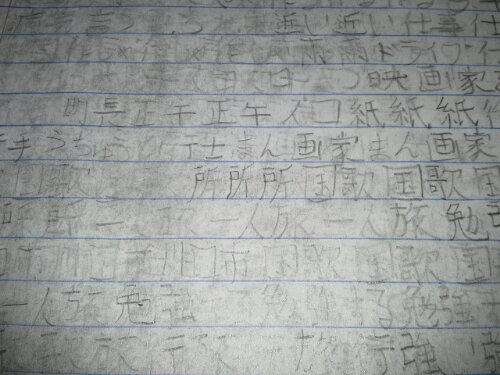Or the party is hidden? Or the cache is done?
There are several lexical differences between Standard French and Louisiana French. One says cache-cache [hide hide] in France, and sometimes cache-est-faite [cache is done] in Louisiana to mean hide-n-seek, but that is not the focus of this post. We’re going to talk about orthography.
This compound noun is written as above, cache-et-faite [cache and done], cache-fette, cachez-fête [hide the party], and caché-fête [hidden party]. Each of these spellings is pronounced the same and can also mean something different if one considers their components.
The writing of Louisiana French, or rather of any unwritten language, is perfect for studying the way that speakers separate words in their heads. It’s very much possible that the standard French writing system influences speakers to think that, for example, je sais [I know; ʃɛ] is truly two words, whereas je [I] is a clitic that can’t be separated from the verb. So, one could just as well write chais without creating much trouble. In fact, these things often come about in informal domains; one can find the spelling chu for je suis [I am; ʃy] in texts as well as online, for example.
In Louisiana, agglutination is the example of this that appears the most often. Liaisons, when they are very regular, become real parts of the words. As such, one says le n-oncle [the uncle; l’oncle in Standard French] and un z-haricot [a bean; un haricot in Standard French] because the standard writing fails to influence illiterate speakers. These forms are still variable, however. As one approches Creole, one see them become rules. Ultimately, this requires a new orthography. The trouble that one finds, trying to write Creole with the writing system it is based on, makes this new orthography more or less necessary, but on loses something with this choice.
So, that brings us back to the subject of cache-est-faite. I guess I didn’t talk about this word much, I kind of got lost, but another angle that I’d like to talk about in another post, is etymology.

Recent Comments